- JST Home
- /
- Strategic Basic Research Programs
- /
 PRESTO
PRESTO- /
- project/
- Technological Foundation of Advanced Quantum Computing and Information Processing/
- [Quantum Software] Year Started : 2020
[Quantum Software] Year Started : 2020
Eriko Kaminishi
Analysis and development of variational quantum algorithms in open systems
Grant No.:JPMJPR2011
Researcher
Eriko Kaminishi
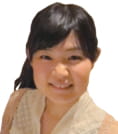
Project Assistant Professor
Faculty of Science and Technology
Keio University
Outline
In this project, we will analyze the effect of noise on variational quantum algorithms and construct a method to evaluate noise errors. In addition, we will develop a method to get out of the local minima efficiently by analyzing from the viewpoint of the optimization method that has been developed in the field of machine learning. Furthermore, we will clarify the noise-accelerated conditions on quantum computation, and develop a variational quantum algorithms assisted by noise.
Hiroshi Shinaoka
Development of innovative quantum many-body computation methods for solids based on sparse modeling
Grant No.:JPMJPR2012
Researcher
Hiroshi Shinaoka
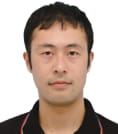
Associate professor
Graduate School of Science and Engineering
Saitama University
Outline
In this project, we will develop quantum many-body computation methods for solids by eliminating the bottlenecks of classical algorithms with quantum supremacy, leading to innovation in production processes through the search for new functional materials and acceleration of materials analysis. Specifically, we will develop (1) quantum-classical hybrid algorithms based on the dynamical mean-field theory and sparse modeling, (2) software programs for predicting the properties of solids, and (3) demonstrate the algorithms for real materials.
Shigetoshi Sota
Reseach and development for quntum dynamics simulation by quantum computer
Grant No.:JPMJPR2013
Researcher
Shigetoshi Sota
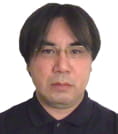
Technical Scientist
Center for Computational Science (R-CCS)
RIKEN
Outline
The quantum dynamics of quantum many-body systems is not well understood because of the difficulty of numerical simulations using classical computers. This study will develop hybrid quantum-classical algorithms for quantum dynamics of quantum many-body systems by using NISC devices. The developed algorithms will be implimented on NISC devices and the results will be compared with those obtained by quantum computing simulators with large scale classical computers to clarify a quantum advantage of the quantum computing. The developed algorithms will also be applied to quantum many-body systems to study the quantum dynamics.
Hiroyasu Tajima
Construction of a unified theory of symmetry, irreversibility, and quantumness and its application
Grant No.:JPMJPR2014
Researcher
Hiroyasu Tajima
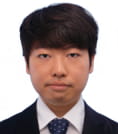
Assistant Professor
Graduate School of Informatics and Engineering
The University of Electro-Communications
Outline
I establish a unified theory of symmetry, irreversibility, and quantumness, and apply the theory to various areas including quantum computation, quantum thermodynamics, condensed matter physics and biophysics. In particular, I explore practical error correcting codes for fault-tolerant quantum computation, and seek methods for improving the performance of quantum devices including quantum heat engines.
Teruo Tanimoto
Quantum computer system architecture study for reliability
Grant No.:JPMJPR2015
Researcher
Teruo Tanimoto
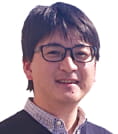
Associate Professor
Faculty of Information Science and Electrical Engineering
Kyushu University
Outline
The system-level reliability is essential to utilize quantum computers as tools. Though Many quantum circuit executions contribute to improving the reproducibility of results, it causes longer execution time and larger energy consumption. It is important to control the number of executions considering the characteristics of quantum algorithms and quantum devices. This study explores a reliable quantum computer’s architecture design by establishing a quantum computer simulation framework with a realistic qubit behavior model.
Takashi Tsuchimochi
Development of a comprehensive quantum algorithm for diverse electronic structures
Grant No.:JPMJPR2016
Researcher
Takashi Tsuchimochi

Outline
To elucidate complex chemical reactions by quantum computers, it is extermely important to develop quantum algorithms that exert their potentials even with limited quantum computational resources. The goal of this project is to create technologies that make full use of the early quantum computers by proposing and investigating quantum circuits and methodologies that are suitable for classicaly challenging systems, such as strongly entangled ground and excited states, especially in an accurate yet practical manner with a limited number of qubits.
Takashi Nakajima
Virtualization of quantum bits using real-time control software
Grant No.:JPMJPR2017
Researcher
Takashi Nakajima
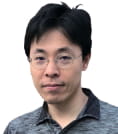
Senior Research Scientist
Center for Emergent Matter Science
RIKEN
Outline
Performance of quantum computing hardware is influenced by subtle details of control protocols in addition to physical properties of the quantum device. This project aims to develop closed-loop control algorithms for quantum computing hardware that can take full advantage of the hardware properties. This automatic control allows one to operate “virtual” quantum bits that exhibit superier properties than bare ones. The virtual quantum bits will be an essential building block of scalable quantum computers.
Yuuta Mizuno
Quantum Computing for Discrete Chemical Reaction Theory
Grant No.:JPMJPR2018
Researcher
Yuuta Mizuno
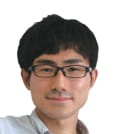
Assistant Professor
Research Institute for Electronic Science
Hokkaido University
Outline
Atoms and molecules are discrete entities that behave as particles, and chemical reactions can be considered as discrete events in which the combination of interatomic bonds changes. Due to this discreteness and combinatorial explosion, chemical reaction theory has problems that require a huge amount of computational resources in the conventional computing, such as stoichiometric reaction pathway analysis and stochastic kinetic analysis. In this project, I develop frameworks for efficiently solving these problems by quantum computing, contributing to the synergistic development of chemical reaction theory and quantum information processing technology.
Kosuke Mitarai
Development of low-level task decomposition techniques in quantum computation
Grant No.:JPMJPR2019
Researcher
Kosuke Mitarai

Associate Professor
Graduate School of Engineering Science
Osaka University
Outline
While quantum computing hardware has made rapid progress in recent years, its performance in near future is expected to be limited in terms of the available number of qubits and the fidelity of gates. This project will develop techniques to divide a task that we wish to execute on a quantum device into smaller ones that can be performed with such near-term devices. In particular, it will focus on low-level quantum tasks such as quantum gates and circuits to perform the task splitting, which makes it applicable to a wide range of algorithms.
Hayata Yamasaki
Foundation of algorithms and implementations for high-speed quantum machine learning
Grant No.:JPMJPR201A
Researcher
Hayata Yamasaki

Assistant Professor
Graduate School of Science
The University of Tokyo
Outline
This collaborative research aims to lay a theoretical foundation of algorithms and implementations for quantum machine learning without ruining high speed and wide applicability. The research investigates how to realize advantage of quantum computers in future toward high-speed and large-scale machine learning. The results will lead to a theoretical foundation for how we living in the information-technology (IT) society supported by machine learning benefit from quantum computers, accelarating further progress of the IT society.













